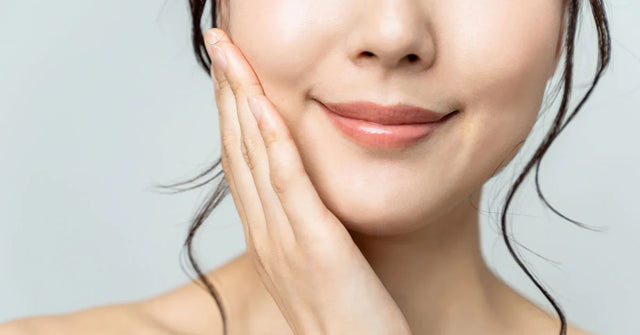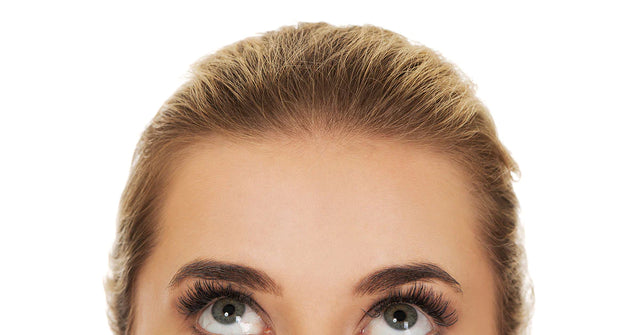With age, your complexion becomes thinner and more vulnerable. It may also show the effects of environmental damage, like exposure to UV rays. Skin problems over 60 are common and may include dryness, bruising, age spots, eczema, and other signs of the ravages of time.
However, several lifestyle habits, skin care products, and even clinic treatments can ensure a great complexion into old age. In this article, we’ll explore the causes of skin issues over 60, describe some common problems you may experience, and provide you with detailed information on how you can keep your complexion in good condition and reduce common signs of age for optimal skin health.
What Causes Skin Problems Over 60?
As we age, the skin goes through some natural physical changes which can impact its health and appearance. Collagen and elastin levels decline, which can lead to loose, saggy skin and wrinkles. The dermis also loses moisture because the sebaceous glands produce less oil, which may cause dry, flaky, itchy skin.
The complexion also thins out with age and becomes fragile, leaving it more vulnerable to bruising, skin rashes, and damage from external elements like UV rays and pollution. After 60, your skin really shows the impact of possible sun damage, poor skin care, and other lifestyle factors like nutrition quality.
Common Skin Problems Senior People Face
For most people, skin health tends to decline in their senior years due to natural factors and the impact of environmental harm over time. These are some of the most common skin issues seniors are likely to experience and the reasons they occur.
Bruising
After 60, the skin is thinner, losing some of the outer fat layers that protect it from damage. Its fragility makes the dermis more vulnerable to blood vessels breaking under the surface, leading to bleeding and bruising at times. This may also occur as a side effect of some medications.
Age Spots
Age spots on the face are caused by an overproduction of melanin due to sun exposure and UV damage over time. If you have spent a lot of time in the sun without sunscreen, you are more likely to develop areas of hyperpigmentation in your complexion. While this is not dangerous to the skin, some people do not like having an uneven tone and seek to lighten these areas.
Itchy and Dry Skin
One of the most common aging skin problems is a decline in hydration levels, leading to dry skin. As we age, the sebaceous glands produce less of the oils which keep the skin moisturized. Levels of hyaluronic acid decline, and it becomes more difficult for the skin to retain liquid.
This issue can worsen due to factors like sun damage or a poor skincare regimen. When the complexion becomes dry, it’s more vulnerable to cracking which can allow in harmful bacteria leading to itchy, flaky skin.
Skin Cancer
While cancer is certainly not an inevitable consequence of aging, people who have not protected themselves from UV rays throughout their life are at risk for skin diseases like melanoma.
The average age of diagnosis for this abnormal cell development is about 65. It first presents as hard, scaly patches on the skin’s surface, so if you notice these, see a physician immediately to make sure you catch it early.
Eczema
While skin disorders like eczema can occur at any time in life, aging skin is more vulnerable to dryness and a flaky, itchy complexion. Even if you have been free of eczema all of your life, there’s still a chance that it could occur after 60.
Other Conditions
In addition to eczema, older skin is more prone to several conditions and issues. When the complexion becomes dry and cracked, it allows entry of pathogens that can irritate it and possibly cause infections. Elderly people are also likely to develop pruritus, which presents as extremely dry, itchy, irritated skin.
How to Keep Your Skin Healthy Over 60
If you’re over 60 and the health of your skin has declined, you should know that several methods can help it become more vibrant, hydrated, better toned, and reduce signs of age. Some of these involve lifestyle modifications, but there are also skincare products and clinical treatments that can enhance skin health and radiance.
Develop a Skincare Routine
We can’t stress enough the importance of a regular skin routine throughout your life, and if your age is over 60, you have to make sure you are consistent and use high-quality products. Besides your regular cleansing and toning, ensure you add a deeply hydrating moisturizer or anti-aging cream/serum to your skincare regimen, exfoliate gently 2-3 times a week, and protect yourself with sunblock every time you go outside. You can add Dermaxsol to your skincare regimen, a lightweight hydrating cream that effectively protects the skin from harmful UVA rays with SPF30.
Use Humidifier
Running a humidifier is a great way to add moisture to the air, which can provide the skin with hydration and help alleviate a dry, flaky, cracked complexion. It’s especially important to use one in the winter when the air is very dry, but it may be helpful any time of year to hydrate and decrease the symptoms of skin conditions like eczema.
Keep Away From the Sun
Damage from UV rays is one of the biggest causes of skin aging, and over 60, the fragility of the complexion makes it even more vulnerable. It’s best to limit your time in the midday sun and make sure you wear a strong sunblock every time you go outside, in each season.
Don't Smoke
If you’re a smoker, one of the best things you can do for your skin health and overall wellness is quit the habit - or at least cut it down significantly. Smoking depletes the skin of oxygen and nutrients by impairing circulation, leading to a dull, dry, unhealthy complexion.
The skin absorbs toxins from the cigarette, which can lead to further damage and make the complexion more vulnerable to developing conditions like eczema.
Keep Hydrated
For aging skin which may be dry and have trouble retaining moisture, it’s crucial to keep up your hydration levels by drinking plenty of water during the day. This will also help plump your skin, which could smooth wrinkles and fine lines for a more youthful appearance.
Eat Healthy Meals
In addition to drinking adequate water, include some hydrating foods in your diet to stave off the dryness, like nuts, seeds, watermelon, yogurt, raw spinach, and peaches. You should also consume antioxidant and anti-inflammatory-rich foods, which repair damage to the skin barrier and decrease redness and swelling. Examples include berries, tomatoes, garlic, and dark chocolate.
Don’t Use Harsh Skin Ingredients
When choosing your skin products for your daily regimen, make sure they include pure organic ingredients with no chemical additives or fillers, which could lead to irritation. Avoid products with parabens, sulfates, or artificial fragrances that could cause a skin reaction or exacerbate existing issues.
Try Clinic Treatments
If your skin problems are not improving through changes in your lifestyle or skincare routine, speak to a dermatologist about possible clinical treatments which may improve hydration, decrease signs of age, heal skin conditions, and boost the overall health of the complexion.
The physician may suggest some of the following procedures:
Laser Therapy: LED laser therapy uses different wavelengths of light to penetrate the skin for healing, rejuvenation, and anti-aging benefits. While traditionally done in a clinic setting, there are devices now for sale for home use as another option.
Chemical Peel: In this procedure, the practitioner applies a chemical solution to the face, which removes the very top layer of skin, revealing a healthier, more vibrant complexion underneath.
Microdermabrasion: The clinician uses a device that removes the outer layer of skin, removing dead skin cells and also stimulating the production of collagen and elastin. This makes the skin firmer and more elastic and smooths wrinkles and fine lines.
Choosing the Right Skin Care Products For a Mature Skin
As you get older and especially over 60, you should define your skincare routine and purchase products suited to the needs of a more aged complexion. These are some great tips for selecting the right items.
Read the Product Labels
When selecting your products, it’s important to read the labels carefully to make sure there are no risks or side effects and the ingredients are all suitable for your needs and skin type. It’s a good idea to do your research on the efficacy and safety of the substances included.
Seek Expert Advice
If you're over 60 and have issues with your skin, seeing a dermatologist to discuss different medications and other treatment options is an excellent idea. Some skin problems or conditions may require a more professional, clinical approach than some of your regular skincare can provide alone.
Set Goals and Expectations
No matter how high the quality of the products you use, you must realize that it will take time to rejuvenate and revitalize your skin health and reduce some of the issues you may be experiencing. For this reason, it’s important to manage your expectations when it comes to results.
Set reasonable skin health goals, possibly along with a dermatologist, and allow time and persistence to meet each milestone before you give up on a product or treatment.
FAQs
Question #1 - What is the best treatment for 60-year-old skin?
If you’re over 60 and trying to enhance your skin health, it's best to use a combination of methods, including improving your diet and water intake, developing a strong anti-aging skincare routine, and possibly seeing a dermatologist for serious or persistent problems.
Other health habits that can improve aging skin include quitting smoking, protecting your complexion from sun damage, and using gentle, organic, non-toxic skincare products.
Question #2 - How do you treat skin problems for the elderly?
Serious skin problems in the elderly are best treated by a dermatologist, who can recommend stronger medications and creams than you can get over the counter. There are also procedures you may consider, like laser therapy, microdermabrasion, or chemical peel.
Question #3 - What is best for elderly skin?
If you have elderly skin, it’s important you follow a consistent skin routine using deeply hydrating products with anti-aging benefits, drink plenty of water to keep hydrated and follow a healthy, antioxidant-rich diet.
It’s essential to protect elderly skin from the sun’s rays and avoid unhealthy habits like smoking which can hurt aging skin. An older complexion may also benefit greatly from dermatological treatment or clinic procedures like laser therapy and microdermabrasion.
Key Takeways
If you’re over 60 and you have concerns about the health and vibrancy of your skin, we hope this article has provided you with a wealth of information about the types of problems you may expect to experience with age and how to solve them.
By making changes to your lifestyle, following a strong skincare routine, and possibly seeking dermatological care, you may ensure that your skin stays healthy and radiant for years.
Our high-level selection of safe, quality all-natural skincare products is ideal for skin over 60. Look at our collection and the benefits it offers for a deeply hydrated, radiant, and youthful complexion into old age.
Mentioned in this article
More stories

How To Tighten Your Skin Around Your Mouth And Jaw







